#self-fulfilling prophecy
Explore tagged Tumblr posts
Text
Oh Harrow
Do you ever think about the little exchange, from the first third of "Gideon the Ninth" I think, of "Do you want a hankie?" from Gideon being answered with an
"I want to watch you die."
from Harrowhark?
Because I think about it a lot, it seems.
And she certainly got what she wanted, didn't she! *sob*
#the locked tomb#gideon nav#harrowhark nonagesimus#self-fulfilling prophecy#griddlehark#tlt#gideon the ninth#The Locked Tomb spoilers#tlt spoilers
56 notes
·
View notes
Text




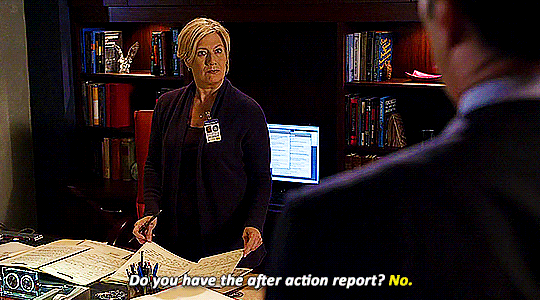
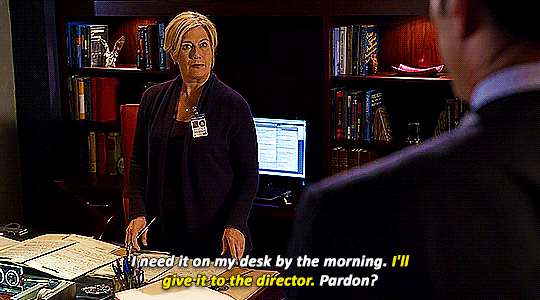

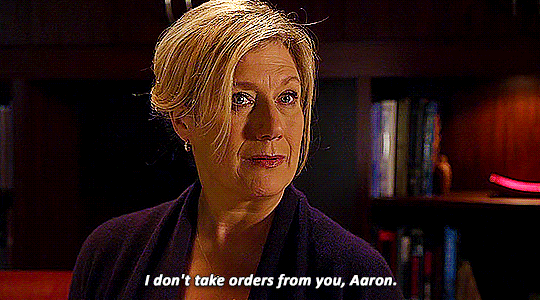

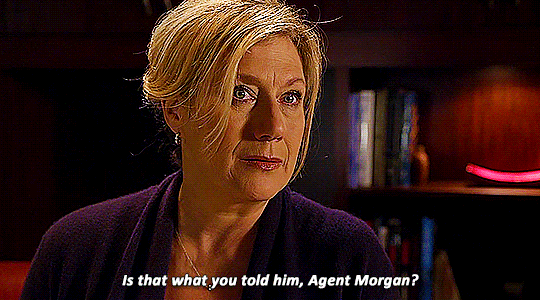




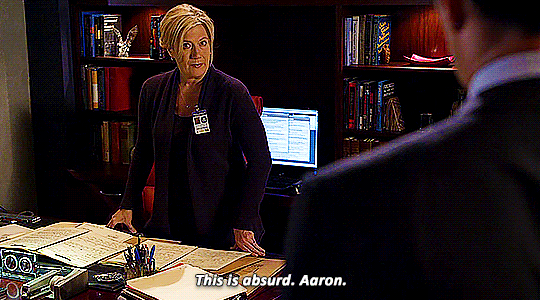




Criminal Minds 7.09 | Self-Fulfilling Prophecy
#erin strauss#aaron hotchner#hotch#derek morgan#cm#criminal minds#cmedit#criminalmindsedit#tvedit#tvedits#7x09#self-fulfilling prophecy#jayne atkinson#thomas gibson#shemar moore#my gifs#edit
80 notes
·
View notes
Text
🇵🇸 [ click this button daily to help support palestine ]
[ learn about palestine ]
[ look through my "palestine aid" tag, donate what you can and reblog for what you can't ] 🇵🇸
[ pfp ]
heyo!

➙ info about us
⤍ poker, chorus, or fate
⤍ they/he/lyr, genderqueer myrrose mspec gaybian
⤍ medically recognized c-did system
⤍ audhd, dyscalculia, madd
⤍ personality disordered
⤍ physically disabled (pots)
⤍ bodily white + ethnically jewish, 18
⤍ current interests/hyperfixations ; malevolent podcast, mouthwashing
⤍ special interests ; music, psychology, my ocs, hazbin hotel, will wood
⤍ other interests ; fnaf, dsmp, madoka magica, arcane

➙ tags
⤍ reblog, fav, ect ; self-explanatory
⤍ words words words !! ; original posts
⤍ emoji tags ; which alter posted/reblogged something
⤍ self-fulfilling prophecy ; mecore tag
⤍ home sweet home ; comfort tag
⤍ hopepunk ; humanity and hope tag
⤍ polycule tag ( + ii tag and mo tag) ; reminds me of my partners
⤍ momo tag + es tag + sn tag ; reminss me of my friends

➙ other blogs
⤍ @demi-and-awkward [main]
⤍ @enderenby404 [reblog spam]
⤍ @pointingthewrongway [vent/trauma blog]
⤍ @polyfragcultureis
⤍ @hpdcultureis
⤍ @narcissisticpdcultureis

➙ frequent fronters
⤍ everything is really blurry as of late so we don't exactly have known frequent fronters at the moment
⤍ ❓ ; blurry
⤍ 👥 ; three or more alters in front
⤍ 🍲 ; soup front
#pinned post#i use this post as a tag guide lol#poker talks#self-fulfilling prophecy#fav#home sweet home#misc art#laugh rule#music reccs#movie reccs#polycule tag#b#save#game reccs#npdcore#asks#◇#current events#mo tag#ii tag#my mom tag#kevin tag#z#momo tag#tag gamesque#emotes#📐core#show reccs
52 notes
·
View notes
Text
✨𝗣𝗮𝘆 𝗔𝘁𝘁𝗲𝗻𝘁𝗶𝗼𝗻🙏😇 𝗥𝗲𝗮𝗱 𝗖𝗮𝗿𝗲𝗳𝘂𝗹𝗹𝘆❗👇 A Scientifically proven home ritual proven by four Neuroscience Labs that attract money effortlessly 😍💭 Don't believe us? Try it out for yourself and see the results in just hours! ⏰💫 Click here to learn more

#Law of Attraction#Manifestation#Positive thinking#Visualization#Affirmations#Gratitude#Energy flow#Belief system#Quantum physics and attraction#Vibrational frequency#Universal laws#Intention setting#Self-fulfilling prophecy#Creative visualization#Subconscious mind power#Abundance mindset#Attracting success#Mindfulness and attraction#Emotional alignment#Law of vibration#Law of reciprocity#Law of deliberate creation#Quantum manifestation#Law of allowing#Self-belief and attraction#Magnetism of thoughts#Aligning thoughts and actions#Law of resonance#Positive energy attraction#Law of synchronicity
22 notes
·
View notes
Text
I hope my posts are used in a multi part video essay series
2 notes
·
View notes
Text













Criminal Minds 7.09 | Self-Fulfilling Prophecy
#erin strauss#derek morgan#aaron hotchner#hotch#cm#criminal minds#cmedit#criminalmindsedit#tvedit#tvedits#7x09#self-fulfilling prophecy#jayne atkinson#shemar moore#thomas gibson#my gifs#edit
47 notes
·
View notes
Text
"Can you explain the gap in your resume?"
"I spent majority of the time on job interviews which rejected me on the basis of having a gap in my resume"
i can't get over how evil it is that "gap in your resume" is considered a valid reason to not hire someone like "hmmm sorry you weren't working constantly every day of your life we need people who do nothing but work until they drop dead for us we just don't think you're right for the job" fuck youuuu
48K notes
·
View notes
Text
Jemma and the Wolf
My chickens have an illness that makes them lose their heads.
0 notes
Text
How Our Social Beliefs Shape Reality: The Power of Expectations
Our expectations shape reality in relationships, education, and workplaces. Explore the psychology behind behavioral confirmation, stereotypes, and self-fulfilling prophecies, and discover how conscious thought can foster growth and connection. #Psycholog
Imagine a teacher standing at the front of her classroom on the first day of school. She glances at her list of students and notices a few familiar names, siblings of past pupils. Subconsciously, she recalls their older siblings’ behavior—whether they were diligent, mischievous, or disengaged—and unknowingly assigns these traits to the new students before even speaking to them. This scenario…
#behavioral confirmation#education#expectations#psychology#relationships#Sandra Murray#self-fulfilling prophecy#social beliefs#stereotypes#workplace culture
0 notes
Text
✨𝗣𝗮𝘆 𝗔𝘁𝘁𝗲𝗻𝘁𝗶𝗼𝗻🙏😇 𝗥𝗲𝗮𝗱 𝗖𝗮𝗿𝗲𝗳𝘂𝗹𝗹𝘆❗👇 A Scientifically proven home ritual proven by four Neuroscience Labs that attract money effortlessly 😍💭 Don't believe us? Try it out for yourself and see the results in just hours! ⏰💫 Click here to learn more

✨𝗣𝗮𝘆 𝗔𝘁𝘁𝗲𝗻𝘁𝗶𝗼𝗻🙏😇 𝗥𝗲𝗮𝗱 𝗖𝗮𝗿𝗲𝗳𝘂𝗹𝗹𝘆❗👇 A Scientifically proven home ritual proven by four Neuroscience Labs that attract money effortlessly 😍💭 Don't believe us? Try it out for yourself and see the results in just hours! ⏰💫 Click here to learn more
#Law of Attraction#Manifestation#Positive thinking#Visualization#Affirmations#Gratitude#Energy flow#Belief system#Quantum physics and attraction#Vibrational frequency#Universal laws#Intention setting#Self-fulfilling prophecy#Creative visualization#Subconscious mind power#Abundance mindset#Attracting success#Mindfulness and attraction#Emotional alignment#Law of vibration#Law of reciprocity#Law of deliberate creation#Quantum manifestation#Law of allowing#Self-belief and attraction#Magnetism of thoughts#Aligning thoughts and actions#Law of resonance#Positive energy attraction#Law of synchronicity
4 notes
·
View notes
Quote
. . . and was now doing the best in his power to bring about the verification of his own prophecies.
Anthony Trollope, from Phineas Finn
#self-fulfilling prophecy#prophecies#tropes#quotes#lit#words#excerpts#quote#literature#classics#anthony trollope#phineas finn
3 notes
·
View notes
Text
youtube
0 notes
Text






"Death's child"
twitter | bluesky | insta | 🔞 patre*n
#.... sorry#agathario#agatha all along#rio vidal#agatha harkness#nicholas scratch#i was overcome with the concept of Nicky always sensing Rio#as a metaphor for Death looming over him both out of love and quite literally... you choose#But mainly it was the concept of Rio not showing herself to Nicky ever#and not being able to touch him at all#not because it's a certainty that he'd pass#but because she didn't know if he would or not. couldn't risk any contact#not knowing if it would be a self fulfilling prophecy or not#idk if i'm making sense but EITHER WAY#there are a few ways to interpret this comic#in the first draft Agatha was smiling fondly#in this one it's bitter sweet. her saying ''he loves you so'' is also for herself#despite everything#they both love Rio#and on that note! i'm going back to bed. i'm sick as hell#BYE#maryneart
5K notes
·
View notes
Text
"Of course, Edwin, if you make up your mind that you are a failure, you will end by being so."
George Gissing, New Grub Street
#quote#quotation#George Gissing#New Grub Street#Edwin Reardon#Amy Reardon#failure#self-fulfilling prophecy
1 note
·
View note
Text
Thought # 1
If you’re very rarely or never told “No” or don’t have to wait or work for anything, will it be a harder struggle to get on in the World? (This is based on most normal and reasonable of situations – single or separate parenting included and of course, on a continuum). In the “Real World” no one else treats you the same way as your parents do. No one else cares the same way for you as your parents…

View On WordPress
0 notes
Text
Incurable" – When a Word Becomes a Hammer
by Dr.Harald Wiesendanger– Klartext What the mainstream media is hiding Sometimes, a single word is enough to hit someone with the force of a sledgehammer. This includes the medical assessment that a cure is impossible. If one day a doctor told me that my illness was “incurable,” How would I deal with that? Am I stuck in shock? Am I falling mentally into the abyss? Am I giving up? Instead of…

View On WordPress
#Brendan O&039;Regan#Caryle Hirshberg#Harald Wiesendanger#Herbert Kappauf#incurable#Lourdes#miraculous healing#prophecy#self-fulfilling#self-fulfilling prophecy#spontaneous remission#Therapy camps#Walter Gallmeier#Ways Out Charity
0 notes